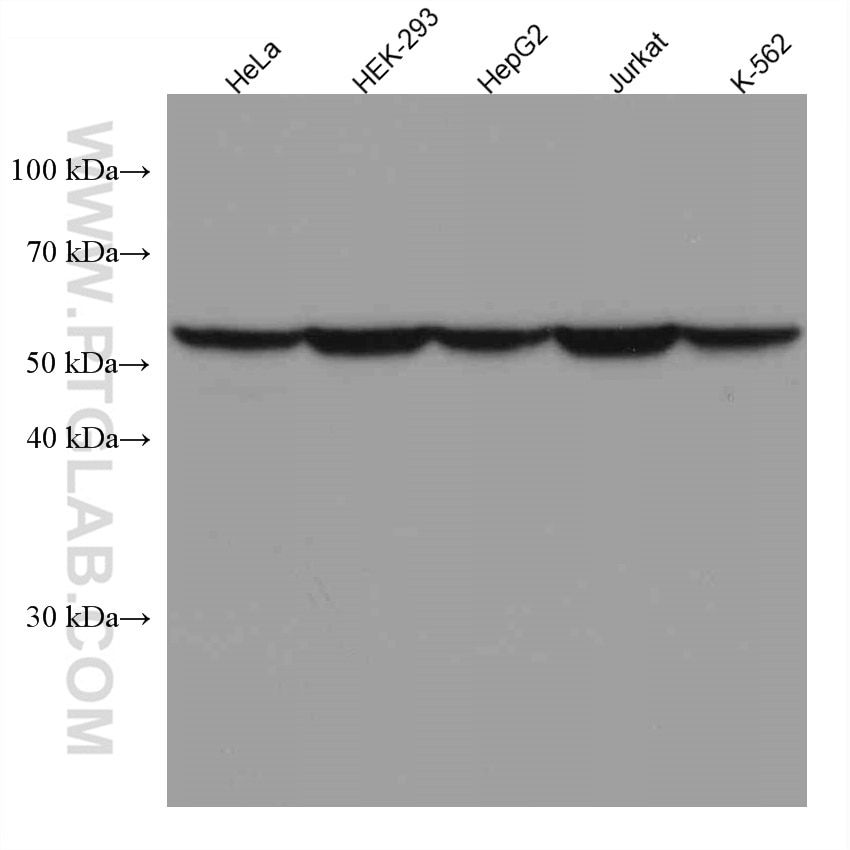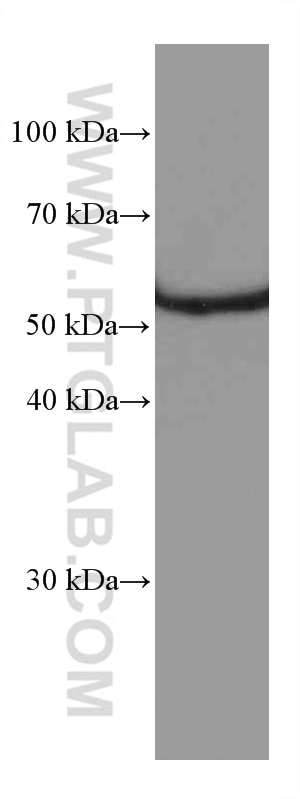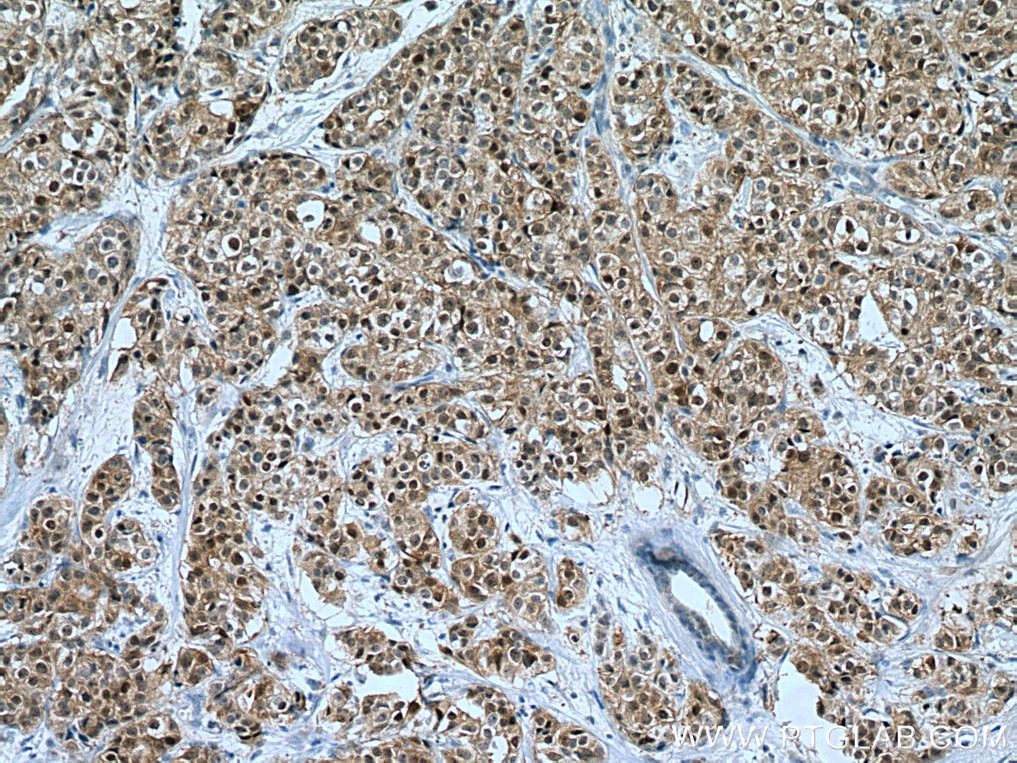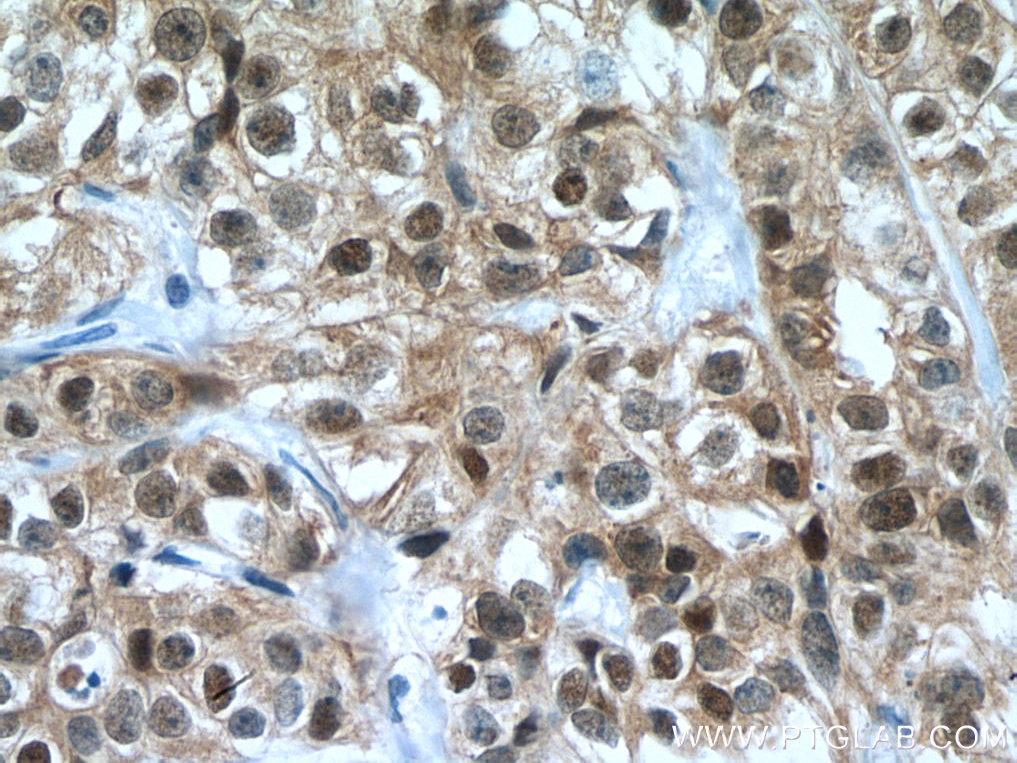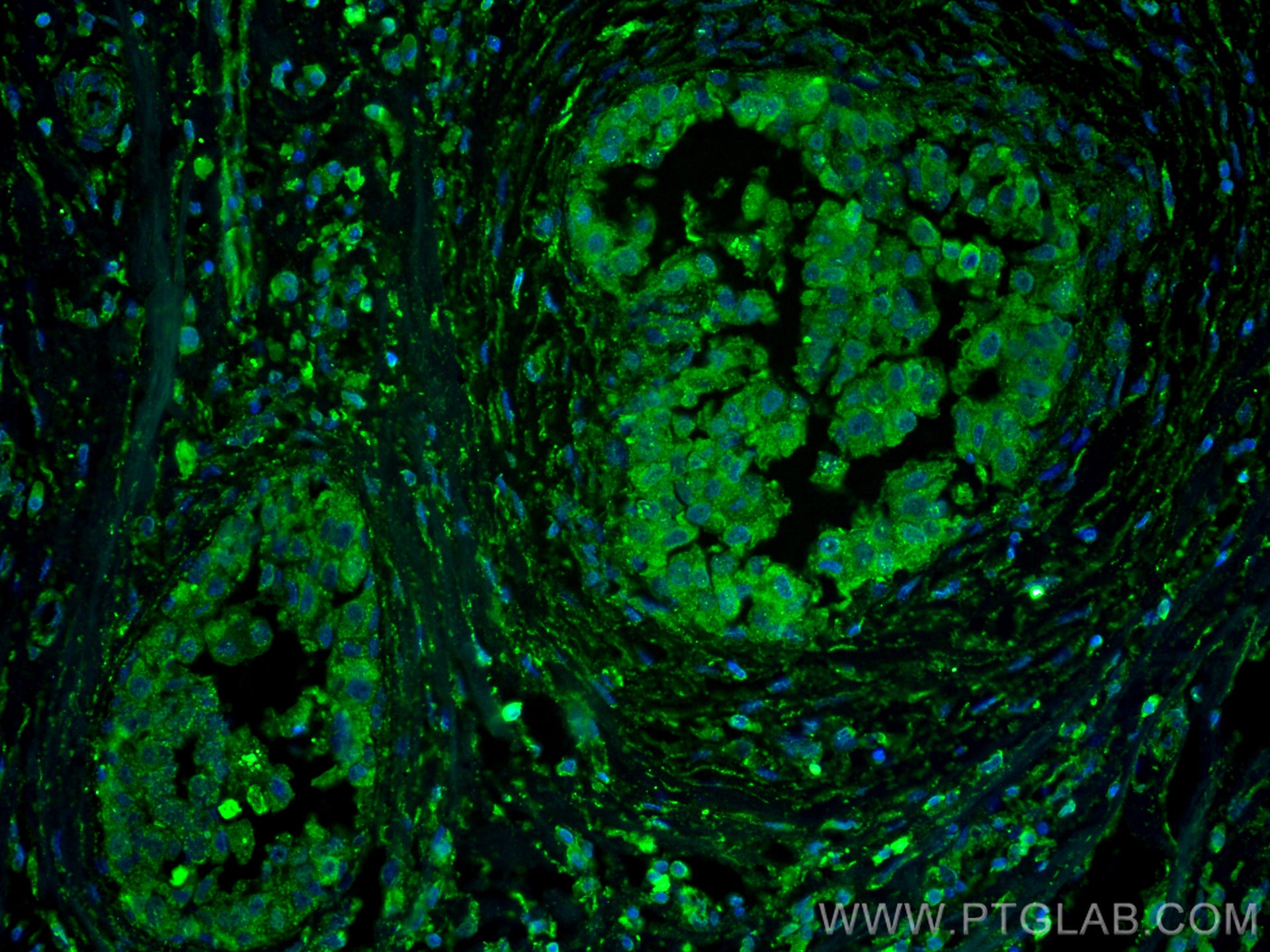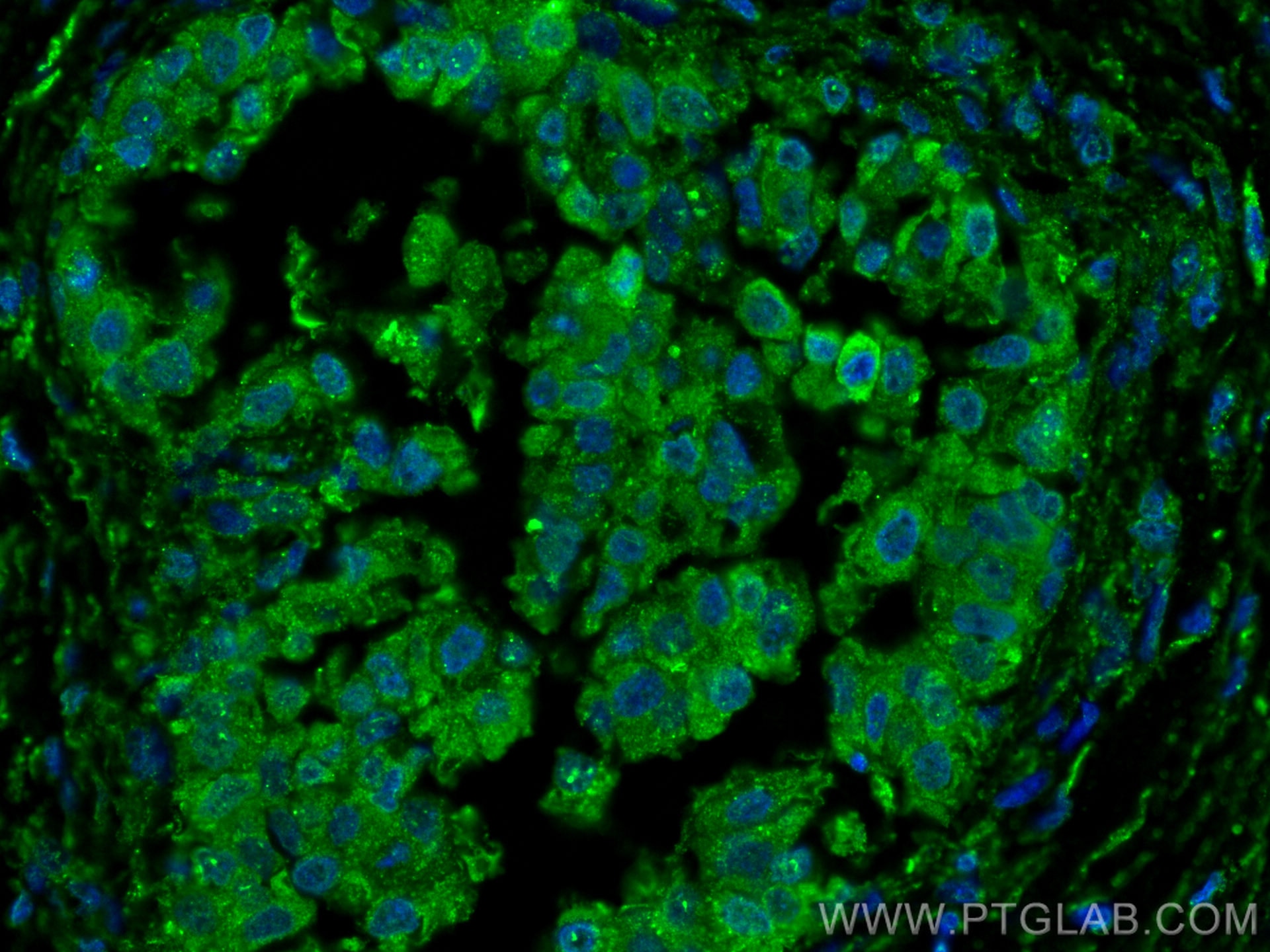Validation Data Gallery
Tested Applications
Recommended dilution
| Application | Dilution |
|---|---|
| It is recommended that this reagent should be titrated in each testing system to obtain optimal results. | |
Product Information
66040-2-PBS targets FKBP52 in WB, IHC, IF-P, Indirect ELISA applications and shows reactivity with human, rat samples.
| Tested Reactivity | human, rat |
| Host / Isotype | Mouse / IgG1 |
| Class | Monoclonal |
| Type | Antibody |
| Immunogen | FKBP52 fusion protein Ag18704 相同性解析による交差性が予測される生物種 |
| Full Name | FK506 binding protein 4, 59kDa |
| Calculated molecular weight | 52 kDa |
| Observed molecular weight | 52 kDa |
| GenBank accession number | BC007924 |
| Gene Symbol | FKBP52 |
| Gene ID (NCBI) | 2288 |
| RRID | AB_11043344 |
| Conjugate | Unconjugated |
| Form | Liquid |
| Purification Method | Protein A purification |
| UNIPROT ID | Q02790 |
| Storage Buffer | PBS only{{ptg:BufferTemp}}7.3 |
| Storage Conditions | Store at -80°C. |
Background Information
FKBP52 (FK506 binding protein 4) is a member of the immunophilin protein family that comprises intracellular protein effectors of immunosuppressive drugs, and it is known as a steroid receptor-associated protein. As a novel regulator of microtubule dynamics, FKBP52 is associated with the motor protein dynein and with the cytoskeleton during mitosis. FKBP52 is highly expressed in CNS regions susceptible to Alzheimer's, and plays a role in modulating toxicity of Abeta peptides. The protein can associate with the Tau function, and may help to decipher and modulate the events involved in Tau-induced neurodegeneration. In addition, FKBP52 is likely to play a role in growth and development of the male genitalia.
